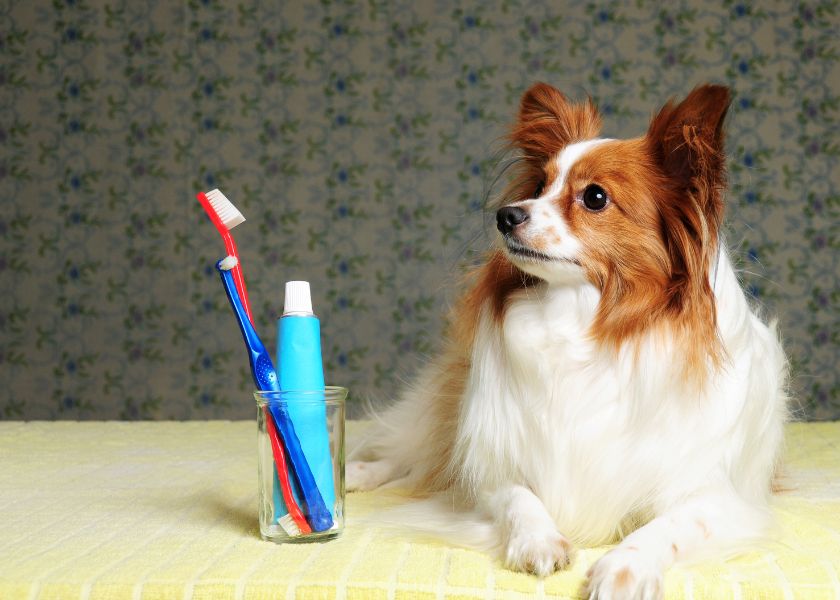
Owning a dog comes with many responsibilities, and one crucial aspect that should never be overlooked is dental care. Just like humans, dogs can experience dental issues that can lead to discomfort, pain, and even serious health problems. By prioritizing dental hygiene, you can help your furry companion maintain healthy teeth and gums throughout their lives. In this comprehensive guide, we will highlight the importance of dental hygiene for dogs and provide valuable tips for maintaining good oral health. From dental products to brushing techniques and professional dental care, we've got you covered. 
Doggie Dental Care: Highlight the Importance of Dental Hygiene for Dogs
Proper dental care is vital for dogs, as it directly affects their overall health and well-being. Dental issues can lead to pain, infection, difficulty eating, and even organ damage. By understanding the importance of dental hygiene, dog owners can take proactive measures to prevent these problems. Here are some key reasons why dental care should be a priority: 
- Prevents dental disease: Dental disease is one of the most common health problems in dogs. According to the American Veterinary Dental Society, by the age of three, the majority of dogs already have some form of dental disease. Regular dental care can help prevent plaque buildup, tartar formation, and gum disease.
- Maintains fresh breath: Let's face it, no one enjoys bad breath, and dogs are no exception. By maintaining good oral hygiene, you can keep your dog's breath fresh and pleasant.
- Promotes overall health: Poor dental health can lead to various health issues beyond the mouth. Bacteria from dental infections can enter the bloodstream, potentially affecting the heart, liver, and kidneys. By taking care of your dog's teeth, you're also protecting their overall health.
- Saves money in the long run: Regular dental care can help identify and address dental issues early on, preventing the need for expensive treatments and procedures in the future. It's an investment in your dog's health and your wallet.
Tips for Maintaining Good Oral Health
Now that you understand the importance of dental hygiene for dogs, let's explore some valuable tips for maintaining good oral health: 
- Regular Brushing
Brushing your dog's teeth is the cornerstone of dental care. Follow these steps for effective brushing:
- Choose a toothbrush specifically designed for dogs or a finger brush.
- Use dog-friendly toothpaste in flavors your dog enjoys, such as chicken or peanut butter.
- Gently lift your dog's lips and brush in a circular motion, focusing on the gum line and outer surfaces of the teeth.
- Gradually increase the brushing time and frequency as your dog becomes more comfortable.
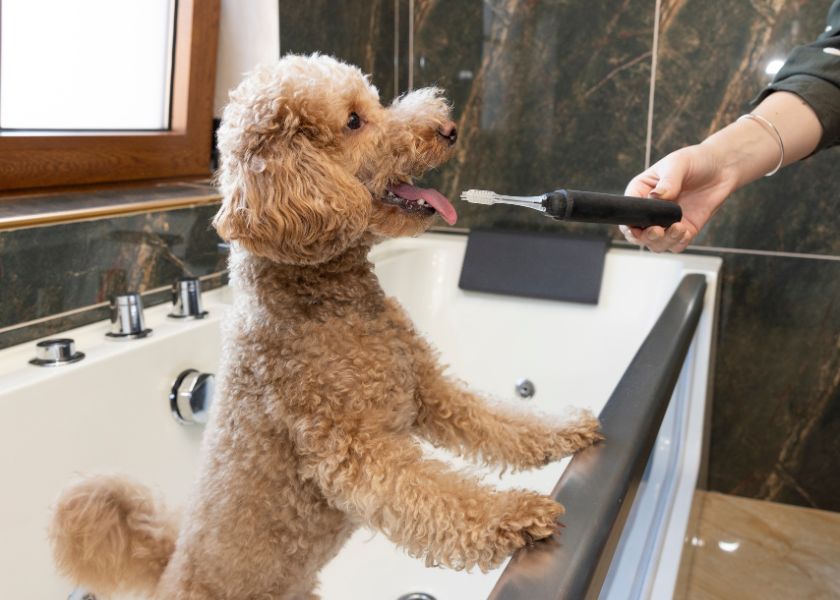
- Provide Dental-Friendly Diet
A proper diet can contribute to dental health. Consider the following:
- Feed your dog high-quality, nutritionally balanced food that supports dental health.
- Avoid feeding them excessive amounts of soft, sticky, or sugary treats, as these can promote plaque formation.
- Offer dental treats or toys specifically designed to reduce plaque and tartar buildup.

- Regular Dental Check-ups
Schedule regular dental check-ups with your veterinarian. They can perform a thorough examination of your dog's teeth and gums, identify any dental issues, and provide professional cleaning if necessary. 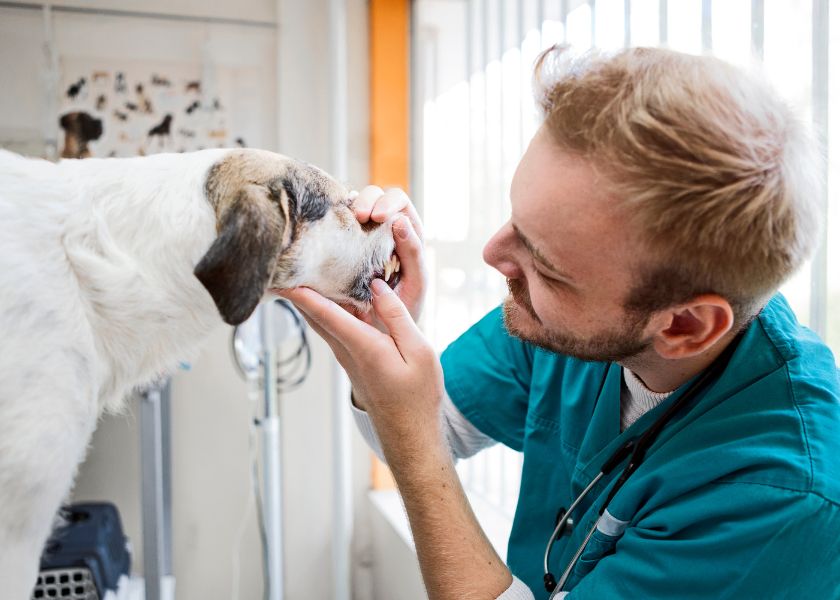
- Maintain Chew Toy Hygiene
Chewing toys can help promote dental health, but they can also harbor bacteria. Follow these guidelines:
- Clean and inspect chew toys regularly. Discard any damaged toys to prevent potential injuries or ingestion of small pieces.
- Choose toys that are appropriate for your dog's size and chewing style to avoid dental fractures or choking hazards.
- Avoid excessively hard toys that could damage teeth.
-4.jpg)
- Monitor Dental Signs
Be vigilant and watch for signs of dental problems. Contact your veterinarian if you notice:
- Bad breath
- Excessive drooling
- Swollen or bleeding gum
- Loose or missing teeth
- Difficulty eating or loss of appetite
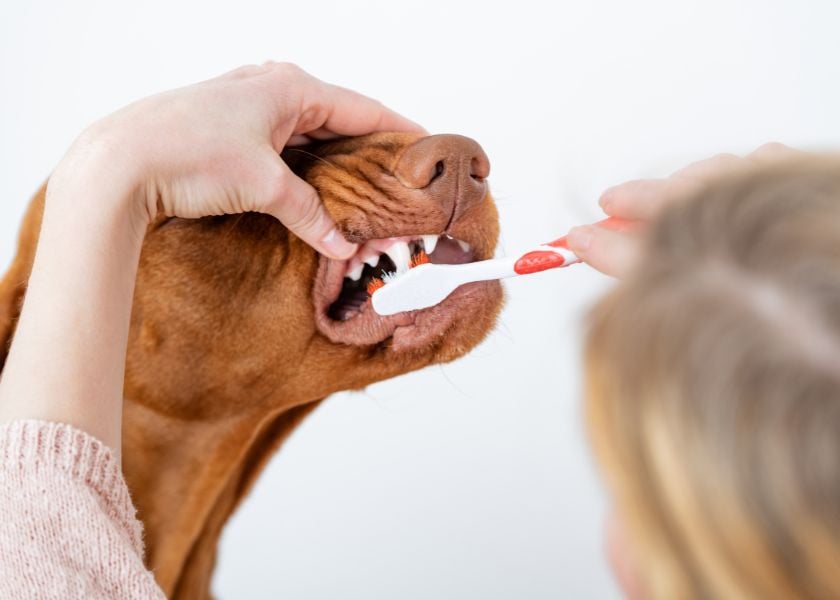
- Professional Dental Cleaning
In addition to regular at-home care, professional dental cleaning by a veterinarian is essential. This involves a comprehensive oral examination, thorough cleaning, and, if needed, treatment for dental issues. Your veterinarian can recommend the appropriate frequency for professional cleanings based on your dog's individual needs. 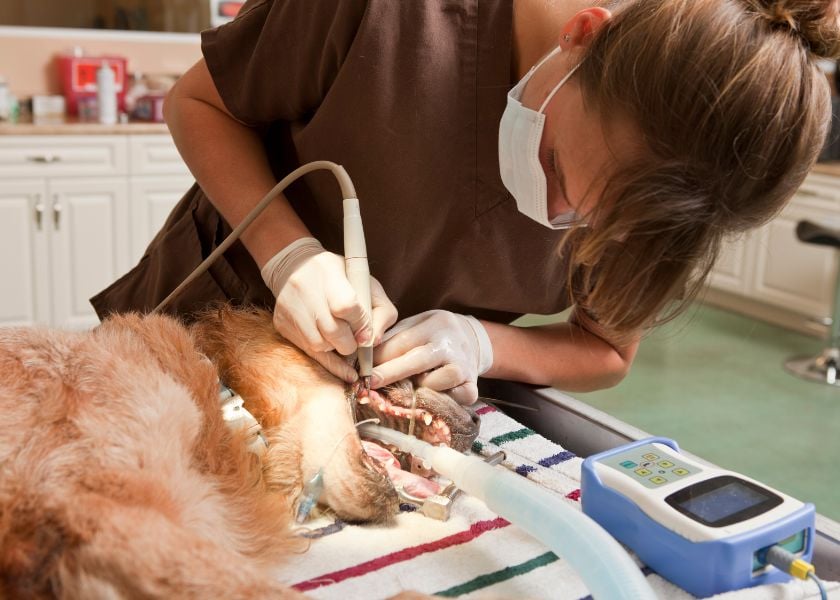
Doggie dental care is an essential part of responsible pet ownership. By highlighting the importance of dental hygiene for dogs and following the tips provided, you can ensure your furry friend maintains good oral health throughout their life. Remember to brush their teeth regularly, provide a dental-friendly diet, schedule check-ups with the veterinarian, maintain chew toy hygiene, monitor dental signs, and seek professional dental care when needed. With proper dental care, you can keep your dog's teeth healthy, and their breath fresh, and contribute to their overall well-being.



